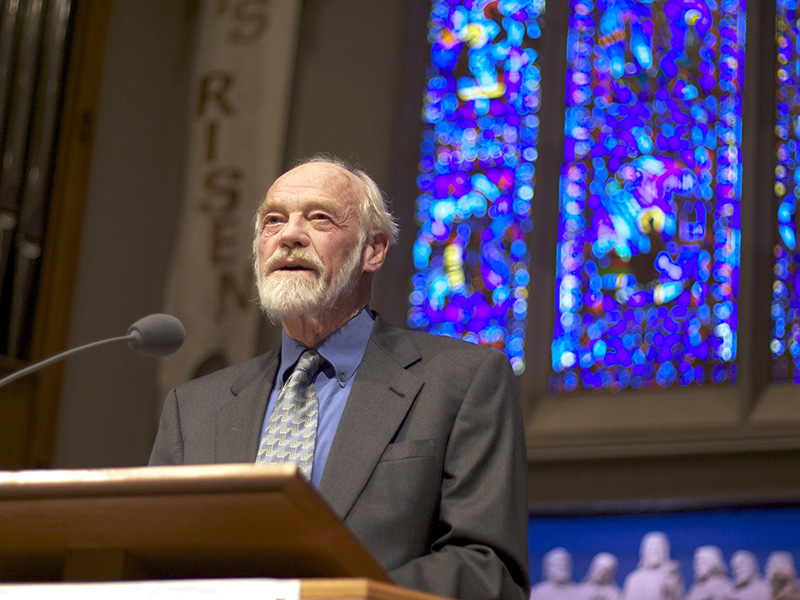During the last election cycle, prominent Christians of all stripes voiced their opinions about the American political landscape. Eugene Peterson, however, did not speak out at that time.
Perhaps this is because the 84-year-old was busy finishing his final book, “As Kingfishers Catch Fire: A Conversation on the Ways of God Formed by the Words of God.” Or maybe nobody took the time to ask him what he thought. Regardless, I wanted to hear Peterson’s thoughts and decided to ask him about Donald Trump and the state of American Christianity. The author of the best-selling “The Message Bible” did not mince words when speaking about either topic.
RNS: You mentioned earlier that these are difficult times. What do you think of what we’re experiencing right now, politically? What are your views of Donald Trump and the political mood animating our world?
EP: I think we’re in a bad situation. I really do. Donald Trump is the enemy as far as I’m concerned. He has no morals. He has no integrity. But I have good friends who think he’s wonderful. But I think they put up with it less and less. People are getting pretty tired of him, I think. Some of us were tired of him before he was elected. I think we can put up with it, though. I don’t think it’s the end of the road.
>>READ ALSO: “Eugene Peterson on why he’s leaving the public eye and whether he fears death”<<
RNS: In “As Kingfishers Catch Fire,” you say that we are facing some of the same cultural situations in our world that you identified years ago. For example, you talk about an “undercurrent of fear fueled by neurotic or manipulative religion.” Can you explain what that means?
EP: I think there’s a whole part of the Christian church which operates out of fear. It’s a negative kind of gospel, which I think is quite contrary to the Gospel that Jesus brought to us. I’m not happy with that. As with Trump, I think we can survive that too. Overall, I’m optimistic. That’s the short answer.
RNS: You’ve seen the church change a lot. You’ve seen Christianity, if I can generalize here, change a lot. Are you more encouraged or more discouraged by what you’re seeing in the American church?
EP: I’m not sure it’s either/or. I do feel like pastors are not doing their job. Look at what’s going on in the church, at least in my Presbyterian church. It has a consumer mentality. It’s about what we can sell and how we can attract people to come to church.
I think the thing that’s most disturbing is the megachurch because megachurches are not churches. My feeling is that when you’re a pastor, you know the people’s names. When 5,000 people come into the church, you don’t know anybody’s name. I don’t think you can be a pastor with just a bunch of anonymous people out there. In the megachurch, well, there’s no relationship with anybody. I think the nature of the church is relational. If you don’t know these people that you’re praying with and talking with and listening to, what do you have? I feel pretty strongly about that.
Now, there’s a lot of innovation in the church, and overall, I can’t say I’m disheartened. I’m just upset by the fad-ism of the megachurch, but I just don’t think they’re churches. They’re entertainment places.







